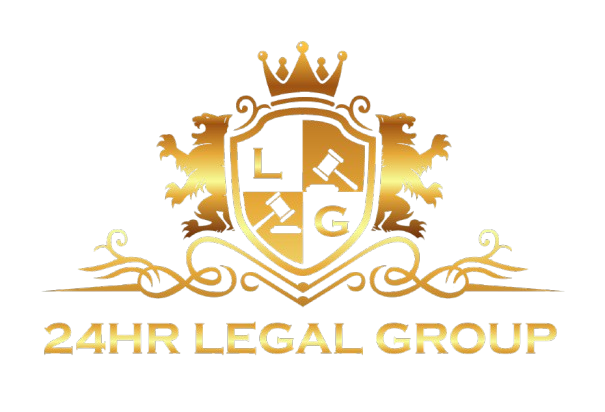- Don’t let your Lender or the IRS overwhelm you
Services
Foreclosure Defense / Loan Modification Program
- Are you behind on your mortgage payments?
- Is your monthly mortgage payment beyond your capacity to pay?
- Does it look like you’ll never catch up on those payments?

If you answered yes to any of these questions a loan modification may be the answer!
The “Home Affordable Modification Program”, which is referred to as “H.A.M.P.” is a new federal law created to assist homeowners modify their mortgages to prevent foreclosures and the loss of their home from foreclosure. Through this program, it is possible to reduce the monthly payments through a loan modification. In most cases, a loan modification reduces the homeowners’ monthly payments by reducing the interest rate and making the mortgage current by adding any amount that is overdue to the end of the loan.
Through the loan modification process you must demonstrate to the lender that you have an existing hardship that makes it impossible for you to make your current monthly mortgage payment. If based on the proofs that you submit, you convince the lender that you have a hardship the lender may agree to change the terms of your loan to make it possible for you to meet your monthly payments.
As part of the loan modification application process detailed financial information, including your monthly income, expenses and assets must be submitted for review by the lender. The lender will ask you for copies of your most recent pay stubs, tax returns and a hardship letter that explains your financial situation and problems. The lender also has to be convinced that you will be able to make the new modified monthly mortgage payment.
Yes – or at the very least you should have your situation evaluated. It is true that the loan modification process can be difficult. But, everyone’s situation is unique and there may be other solutions or options that may be more appropriate for you. You also want your application submitted correctly so that it has the greatest chance of success. There have been instances of an application being denied simply because a box was not checked off. When this happens an application has to be resubmitted with new updated information. All because of a small error! So while the loan modification process can be challenging, if handled correctly, the chances of success increase.
At 24HLG, your situation will be carefully evaluated. In addition, we will give you the best chance of success by submitting your application in a professionally prepared manner. Your application will also be monitored on an ongoing basis to make sure the lender is working on your file. This way, any objections that are raised by the lender can be addressed in a timely manner therefore giving you the greatest chance for success so that you can move on with your life and retain the property forever!

IRS / TAX RELIEF
Tax Liens
In addition, the Federal Tax Liens imposed by the IRS prevent you from being able to borrow any money for a car or home. The banks have gotten so tough on loaning money and opening new bank accounts that anyone with a Federal Tax Lien is usually prevented from even having a simple checking or savings account.
Once you owe the IRS money, they can become very aggressive in their collection attempts. One of the more common collection methods the IRS uses is the LEVY.
The IRS will use either a Bank Levy or a Wage Levy against you.
As Bad as The Bank Levy Is, The Wage Levy (Garnishment) Is Much Worse!
The bank levy is a one time event. Meaning that the IRS must continue to issue a new Bank Levy every time they want to clean out your bank account. The Wage Levy (Garnishment) is much, much worse. The Wage Levy is issued to your employer and it instructs the employer to immediately start withholding ridiculously high amounts of money to pay old tax liabilities in addition to the normal taxes being withheld.
The IRS can also Simply Seize Your Assets and Sell Them At An Auction!
Many taxpayers with IRS tax issues end up losing everything to the IRS through seizure.
Examples given:
- Autos
- Boats
- Motorcycles
- Real Estate
- Retirement Funds
- Insurance Policies
- Antiques
- Collectibles
- Jewelry
Do not underestimate any IRS employee’s ability to follow through on the threat of seizure. Every IRS office in the country has a public list of recently seized assets and details about the upcoming IRS auction to sell those seized assets.
People that have homes and then get into IRS problems, risk the chance of losing their home to the IRS.
Yes, I mean selling the home and giving the money to the IRS for payment of back taxes or letting the IRS seize it and selling it at auction. If you own a home and then find yourself owing the IRS $25,000 for some income or payroll taxes, you could be making house payments on your home that effectively is owned by the IRS. Once they file a Federal Tax Lien on your home, you can’t sell it without paying off the IRS.
Social Security and Retirement Plans are up for grabs.
How? The IRS leaves no stone unturned in its never ending quest to collect all taxes, penalties and interest. Sure, people think the IRS can’t or won’t levy retirement funds. They hope that when they are ready to retire, the IRS will forget about them and how much they owe in taxes. Don’t believe it, the IRS never forgets! They just keep adding penalties to what you owe each day until they find you, or your money, or your income source. Then it’s Pay Day for the IRS!
Are There Ways Out of IRS Problems?
Yes, there are ways to end IRS tax issues, but you must decide to end them, no one else can decide for you. When you decide that enough is enough and you want to have the things that everyone else has and you’re really ready to do something about your IRS tax problems, there are options available to you!
The Solution.
The solutions to solving IRS tax issues begin with the filing of old tax returns to get you in current compliance with the IRS. The IRS will not negotiate with anyone unless they are current with all required tax filings. This means filing all income tax returns and payroll tax returns, if you have employees. The IRS assumes that if you won’t at least get your required tax returns filed, then why waste the time trying to negotiate with you.
We Work for You
Call 24 Hour Legal Group today at 888-855-0099 to discuss your options.
Negotiating a Deal to Pay Less Than What You Owe Through the Offer in Compromise program
How much Less? Well, if you qualify, IT CAN BE a lot LESS! Through a program called an “Offer In Compromise”. This program allows taxpayers to pay pennies on the dollar to settle up on old income tax and payroll tax liabilities.
When I say Settle Up, I mean completely, 100%! There have been cases when a taxpayer offered and the IRS accepted $100 to pay off the entire debt of tens of thousands of dollars.
Once the IRS has accepted the amount you offer and you pay the reduced amount, then the IRS releases all Federal Tax Liens. Your IRS nightmare is over and you get your life back.
It is important to understand that not everybody qualifies for an Offer in Compromise. But, even if the IRS does not accept the taxpayer’s Offer, there are other forms of relief available for taxpayers.
Other relief includes:
- Obtaining a temporary hold on collection actions.
- Obtaining a long-term “non-collectible” status which in some cases results in the eventual abatement of the whole tax liability.
- Arranging with the IRS for an installment agreement.
- Getting the IRS to reduce the penalties.
Tax Problem Solutions for the Divorced or Separated Individual: Innocent Spouse Relief
Most married taxpayers file a joint tax return. When filing taxes jointly both taxpayers are responsible for the tax and any interest or penalties due on the joint return even if they later separate or divorce. This is true even if a divorce decree states that a former spouse will be responsible for any amounts due on previously filed joint returns!
One spouse may be held responsible for all the tax due even if all the income was earned by the other spouse. In filing for innocent spouse relief you may be relieved of the tax, interest, and penalties on owed taxes.
24HLG can help you explore all the choices and options, but you must take the first step. You can call for a Free Consultation to discuss your options in confidence.
Our Clients Never Meet With the IRS!
Many taxpayers use our office to keep the IRS away from them and their families. We make the IRS call US, so our clients can go to work and carry on a normal life.
24HLG has had success in ending IRS tax problems, but you must be ready to follow basic instructions. We can walk you through the IRS maze. We do all the talking to the IRS. Most of our clients Never Meet or Speak With The IRS. We also handle all the meetings and correspondences with the IRS.
